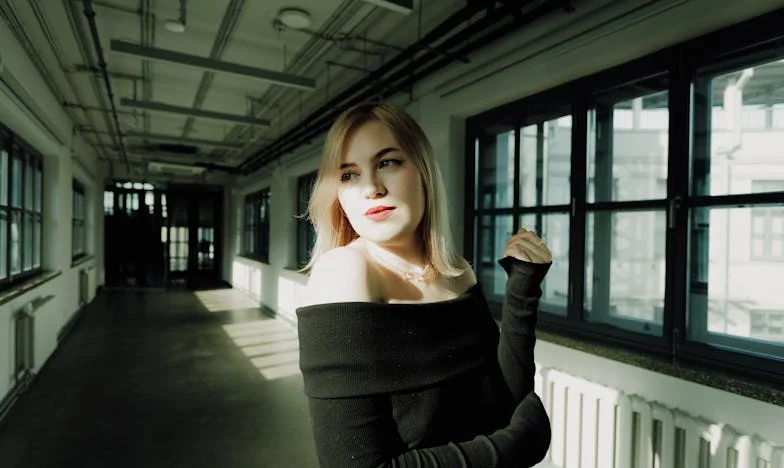A House of Perfection, A Heart in Chaos
“I can’t live like this anymore,” I yelled back at my mother as she slammed the door, her words of accusation still hanging in the air. “Be the lady of this house,” she had said, but what did that even mean when every decision was made for me, every step watched, every breath monitored?
Growing up in a suburban paradise just outside Boston, I was the girl with the perfect life—or so everyone thought. My parents, successful and respected in their fields, had crafted a world where everything was of the highest standard. From the designer clothes in my closet to the luxury sedan I’d been given on my sixteenth birthday, nothing was too good for me. My friends envied my lifestyle, the trips abroad, the endless supply of gadgets and gizmos. But the truth was, I was a prisoner in a gilded cage.
There was one friend, Lena, who saw through the façade. “I don’t envy you,” she said one afternoon after school, her voice cutting through the noise of adulation. “With parents like yours, it’s impossible to live. They control everything.” Her words stung, not because they were cruel, but because they were true. Lena had seen the reality I tried so desperately to hide.
Every day was a performance. My mother, a prominent lawyer, had meticulously planned my life, from the private schools to the piano lessons, even the friends I was encouraged to keep—Lena being the notable exception. My father, a renowned heart surgeon, was more of a silent partner in this arrangement, offering nods of approval or disapproval with the slightest raise of his eyebrows.
It wasn’t that they didn’t love me. They did in their own way, but it was a love wrapped tightly in expectations, suffocatingly so. There was no room for my own thoughts, my own desires. Everything was about maintaining the image, the perfect family, the perfect life.
“Olivia,” my mother would say, using my full name as if to underscore the importance of her words, “you must present yourself well. People are always watching.” And so, I smiled on cue, excelled in school, and played the part of the obedient daughter.
The breaking point came during my senior year. I had planned to apply to a small liberal arts college in Vermont, a place where I could breathe, where the pressures of perfection would be replaced by freedom to explore who I was outside of their expectations. But my mother had other plans.
“Harvard, Olivia,” she insisted, as if it were the only university that existed. “Your father and I have already spoken to the Dean.”
“I don’t want to go to Harvard,” I replied, my voice shaky but firm. “I want to choose my own path.”
The argument that ensued was volcanic. My mother, angered by what she saw as rebellion, accused me of being ungrateful. “After everything we’ve done for you, this is how you repay us?” she screamed, her voice echoing through the house.
In that moment, it was as if a dam had broken within me. Years of suppressed feelings came rushing out. “You don’t see me,” I cried, the words tumbling out in a torrent of emotion. “You see what you want me to be. I’m not just an extension of you!”
My father stood by, silent as always, his eyes filled with a mix of confusion and helplessness. I realized then, in the heat of the moment, that this confrontation was not just about college—it was about everything. Every decision they had made for me, every moment I had felt trapped.
That night, after the shouting had subsided and the house was plunged into an uneasy silence, I packed a bag. I left a note on the kitchen table, not for my parents—words would never be enough—but for myself. “I’m finding my own way,” it read.
The next morning, I drove away from the manicured lawns and pristine streets, heading north to Vermont. I had no plan, no idea what lay ahead, only the desperate need to breathe, to live on my own terms.
The transition was not easy. I found work at a coffee shop in a small town near the college I had secretly applied to. I rented a tiny apartment, the walls bare and the floors creaky, but it was mine. For the first time, I was free to make my own choices, to fail and succeed on my own terms.
Months passed, and slowly, a new life began to take shape. I made friends who liked me for who I was, not who my parents wanted me to be. I discovered passions I never knew I had—photography, hiking, writing. Each day was a journey of self-discovery, and with each step, the chains of my past loosened.
Communication with my parents was sparse at first, strained and awkward. But over time, as the distance between us grew, so too did an understanding. They began to realize that their love, though well-intentioned, had been a cage, and I began to see that their actions, though oppressive, came from a place of fear—fear that I might fail, that I might not live up to the expectations of the world.
It took years, but eventually, we found common ground. I visited home, not as the perfect daughter they had envisioned but as the person I had become. Our relationship, though changed, was stronger for it.
And so, here I stand, looking back at the journey that brought me here. I wonder, in their quest for perfection, did they ever realize that what they truly wanted was for me to be happy? What do we owe each other in the pursuit of our own happiness?”
